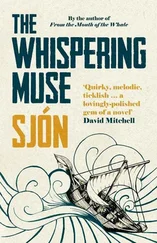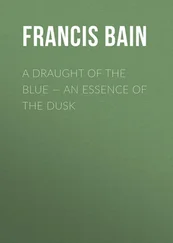‘I have seen the universe! It is made of poems!’
‘Spoken like “en rigtig Islænding”, a true Icelander,’ said the Danes.
Fridrik’s trip to Iceland in the summer of 1868 was, on the other hand, a far more earthbound affair. He had come to sell up his parents’ farm following their deaths from pneumonia, nine days apart, that spring. There were no assets to speak of: the remote croft of Brekka, the cow Crooked Horn, a few scrawny ewes, a fiddle, a chessboard, a bookcase, his mother’s spinning wheel and the tom cat Little Frikki. So the plan was to make his stay brief; it wouldn’t take long to sell the livestock to the neighbours, pay off the debts, pack up the furnishings, hang the cat and burn the farm buildings which were crumbling into the hillside, to the best of Fridrik’s knowledge.
And this is what he would have done if the universe had not thrown up an unexpected riddle in a filthy outhouse one sunny night in June.
***
The wooden tablets play in Fridrik’s hands; what had looked like an incomprehensible puzzle now guides his fingers. It’s as if the riddle is solving itself by magic; without conscious intent the man lays one tablet against another and the moment their edges touch, one slides into the other’s groove and then will not be budged; and so on and on, until the blue tablets have formed a base, while the others are the walls and gable-ends of what resembles a long, quite deep, trough; white-walled within, black without.
And the sentence on the base resolves itself: ‘Omnia mutantur — nihil interit’. Fridrik laughs scornfully: ‘All things change — nothing perishes’. He can’t imagine what cunning craftsman could have given Hafdis this object, choosing for her a quotation from Ovid, no less.
There is a lowing from the back of the house.
The riddle-solver wakes from his thoughts; Crooked Horn the Second is demanding attention. Fridrik puts down the creation and hurries to the byre; he hasn’t yet got the hang of the new household arrangements at Brekka; the animals used to be Abba’s concern.
***
Twenty-riksdaler stipends to students at the University were encumbered with the task of accompanying friendless folk to the grave. Fridrik performed this dreary duty like anyone else, but as he was a hopeless bibliomaniac and forever in the red with Høst the bookseller, he welcomed the chance to take the night watch at the city mortuary. While there he took on yet another job — that of translating articles from foreign medical journals for a thick-witted but well-to-do pathological anatomy student from Christiania.
Fridrik sat many a night by a smoking lamp, translating into Danish descriptions of the latest methods of keeping us poor humans alive, while on pallets around him lay the corpses, beyond any aid, despite the encouraging news of advances in electrical cures.
In the third volume of London Hospital Reports, 1866, Fridrik read an article on the classification of idiots by J. Langdon H. Down, a London doctor. The article was an attempt to explain a phenomenon that had long puzzled people: the fact that white women sometimes gave birth to defective children of Asiatic stock. The doctor conjectured that the mother’s illness or a shock during pregnancy might have caused the child to be born prematurely. This could happen anywhere in the well-documented developmental stages of the foetus: fish — lizard — bird — dog — ape — Negro — yellow man — Indian — white man, but seemed most common at the seventh stage.
Down’s Mongoloid children had therefore not attained full development; they were doomed to be childish and meek all their lives. But like other members of inferior races, with kind treatment and patience they could be taught many useful skills.
In Iceland they were destroyed at birth.
Unlike other types of cretins, where it cannot be seen until too late that they do not have their full wits, no one could fail to see that a Down’s child was made according to a different recipe from the rest of us, even of different, alien ingredients: it had coarser hair, a yellowish complexion, stumpy body, flabby skin and eyes slanted like slits in a canvas.
No witnesses were needed; before the child could utter its first wail, the midwife would close its nose and mouth, thereby returning its breath to the great cauldron of souls from which all mankind is served.
The child was said to have been stillborn and its body was consigned to the nearest priest. He confirmed its nature, buried the poor creature and that was the end of the story.
But there were always some such unfortunate infants that managed to survive. It happened in godforsaken out-of-the-way places where there was no one to talk sense into the mothers who thought they could cope with the children, odd though they were. Then of course they got lost, wandering off in their ignorance, leaving their bones on mountain paths, turning up half-dead in the summer pastures or simply stumbling into the lives of strangers.
And as the poor wretches didn’t know who they were or where they had blown in from, the authorities would settle them on whichever farm they happened to have ended up at.
The farmers were greatly annoyed by these ‘gifts from heaven’, and the household found it degrading to have to share their sleeping quarters with a defective.
***
There was no question that the unfortunate girl imprisoned in the bailiff of Reykjavik’s kinsman’s back yard was one of those Asiatic innocents who owned nothing but the breath in her lungs.
Wiping the food off her hands, she embraced the young man’s head as he wept in the chicken-hatch, comforting him with the following words:
‘Furru amh-amh, furru amh-amh…’
Twilight deepens in the valley; the afternoon night begins its journey up the slopes. The darkness seems to flow from the open grave in the western corner of the churchyard at Botn, as if the shadow grows there first, before darkening the whole world. It’s a near thing with the light: four men appear in the church doorway with a coffin on their shoulders, the parson hard on their heels, followed by several of those black-clad crones who are never ill when there’s someone to be seen to the grave. The funeral cortège proceeds rapidly, as if in a dance, their short steps breaking into quick variations, for the churchyard path is as slippery as glass, although Halfdan Atlason had been sent to break up the surface while they sang over his lady friend in church. Now he stands by the lych-gate, tolling the funeral bell.
A gust carries the copper song down the valley into Fridrik’s parlour where he hears its echo — no, it’s the knowledge that Abba’s funeral is taking place at this moment that has rung the tiniest bell in his mind.
He’s putting the finishing touches on the puzzle’s companion piece; it’s the exact image of the other, except that its base is green, with a different Latin tag. This is also by the author of Metamorphoses, translating as: ‘The burden which is well borne becomes light’.
The moment Reverend Baldur’s pallbearers lower the coffin into the black grave at Botn, it not only becomes pitch black in the valley but light is shed on the contents of the parcel that Hafdis Jonsdottir brought with her north to the Dale, when Fridrik B. Fridjonsson, favourite student of a close kinsman of the bailiff, got her absolved from the charge of exposing her child, on the grounds of ignorance, and on condition that she would remain in his care for as long as she lived.
Yes, if the two halves of the puzzle were laid together they would form an artfully crafted, highly polished coffin.
***
When Fridrik B. Fridjonsson rode north with his peculiar maid-servant and settled on his father’s estate at Brekka, the parish of Dale was served by a burnt-out priest popularly known as ‘Reverend Jakob with the pupil’ Hallsson, who as a child had taken out one of his eyes with a fishhook.
Читать дальше












